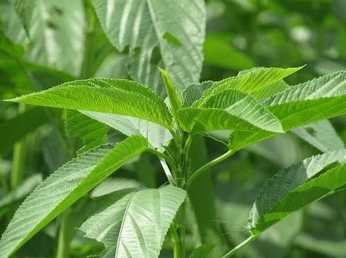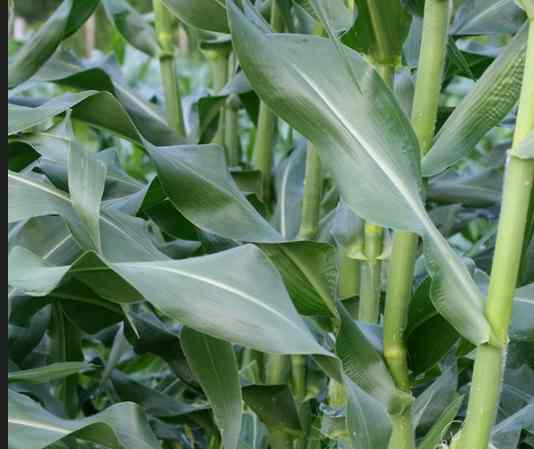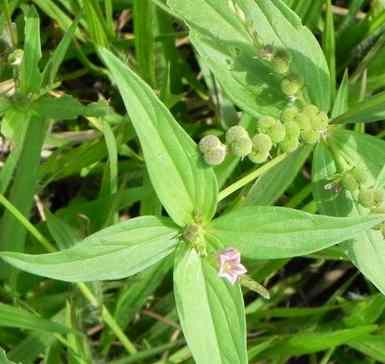
support@yorubalibrary.com
+2348073529208, 07038599574

Ewe Ewedu (also called Ooyo), known in English as Jute Leaf and botanically as Corchorus olitorius, is one of the most popular and highly nutritious vegetables in Yoruba land. The leaf is a key ingredient in the famous Ewedu soup, commonly eaten with amala, fufu, or pounded yam.
Aside from its rich nutritional value, Ewedu has a special place in Yoruba traditional medicine, where it is used to boost blood, ease digestion, improve skin health, and support pregnant women during labour. Its slimy texture is believed to help smoothen the birthing process, making it a recommended food for expectant mothers.
Ewedu is cultivated widely in Yoruba farmlands and home gardens due to its fast growth and high demand.
Key Facts
Category: Leaf
Botanical Name: Corchorus Olitorius
Common Name: Jute Leaf
Yoruba name: Ewe Ewedu or Ooyo
Igbo Name: Nil
Hausa Name: Nil
Health Benefits
1. Eases Childbirth for Pregnant Women
Ewe Ewedu (Corchorus olitorius) is recommended for pregnant women close to labour, as its slimy consistency is believed to make delivery easier and safer.
2. Boosts Blood Production and Prevents Anemia
The leaf is rich in iron and vitamins that help improve blood count and prevent weakness.
3. Improves Digestion and Bowel Movement
Its natural slimy content aids digestion, relieves constipation, and keeps the stomach clean.
4. Strengthens Bones and Teeth
Ewedu is rich in calcium and phosphorus, which are essential for strong bones and teeth.
5. Boosts Immunity and Fights Infections
Its vitamins and antioxidants help protect the body against infections and strengthen the immune system.
6. Promotes Healthy Skin and Hair
Regular consumption of Ewedu soup improves skin glow and strengthens hair due to its rich vitamin content.
7. Aids Weight Management and Heart Health
Low in calories and rich in fiber, Ewedu helps maintain a healthy weight and supports heart health.
Want to treat common ailments such as Malaria, Cough, Measles, Typhoid, Pile etc naturally without spending much? Grab a copy of Authentic Herbal Solutions: 15 Common Ailments & Their Natural Cures. A practical eBook recommended for everyone regardless of tribe, religion or association. Order below or Download sample here
AUTHENTIC HERBAL SOLUTION #4KOne Yoruba proverb says "Bí olóde ò kú, òde rè kì í wu Gbégi". Do you know that Gbégi is actually a leaf/plant? Get Yoruba Proverbs on Plants and Herbs, which is a collection of Untold Wisdoms Hidden in Leaf and plants comprising their Life Applications & Moral Teachings. Order below or download sample here
YORUBA PROVERBS ON PLANTS #4KSpiritual Use
1. Protection for Pregnant Women During Labour
Some Yoruba traditionalists prepare Ewedu soup with prayer rituals for pregnant women to ensure safe delivery.
2. Cleansing Bad Luck and Attracting Good Fortune
Ewedu water is sometimes used in mild cleansing baths to remove bad luck and attract blessings.
3. Restoring Peace and Harmony
Ewedu is occasionally included in rituals meant to restore love and peace in families.
4. Symbol of Fertility and Fruitfulness
Because of its link to safe childbirth, Ewedu is sometimes used in fertility-related herbal works.
Characteristics
⦁ Physical Appearance –
Ewedu has narrow green leaves with pointed tips and turns slimy when cooked or blended.
⦁ Taste and Smell –
Mild herbal taste and pleasant earthy smell when cooked.
⦁ Growth Pattern –
Grows well in warm, sunny farmlands and home gardens, harvested within a few weeks of planting.
Functions
⦁ Culinary Use –
Cooked as Ewedu soup, eaten with amala, fufu, or other traditional Yoruba meals.
⦁ Traditional Medicine –
Blood booster, digestive aid, bone strengthener, and labour-supporting herb for pregnant women.
⦁ Spiritual Cleansing –
Used for protection, safe delivery, and good fortune rituals.
Conclusion
Ewe Ooyo, the Yoruba Jute Leaf (Corchorus olitorius), is more than just a delicious vegetable. It is a nutritious and medicinal plant known for its role in blood building, digestion improvement, and strengthening bones, as well as helping pregnant women deliver safely during labour.
Have you heard of our Yoruba Herb Dictionary? This contains names of Yoruba Leaf, Roots, Barks, Characteristics, Properties & Identification with HD Pictures. Order below or download sample here
A-Z HERBS & LEAF DICTIONARY #4K
Know more about the Yoruba traditional uses and he…

Learn about Ewe Aran, a potent Yoruba medicinal le…